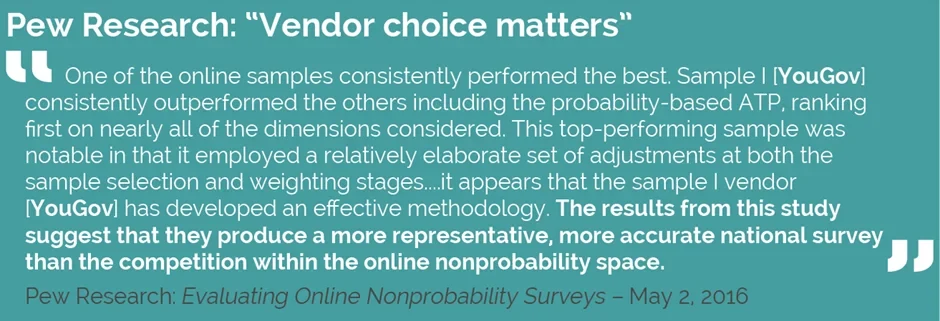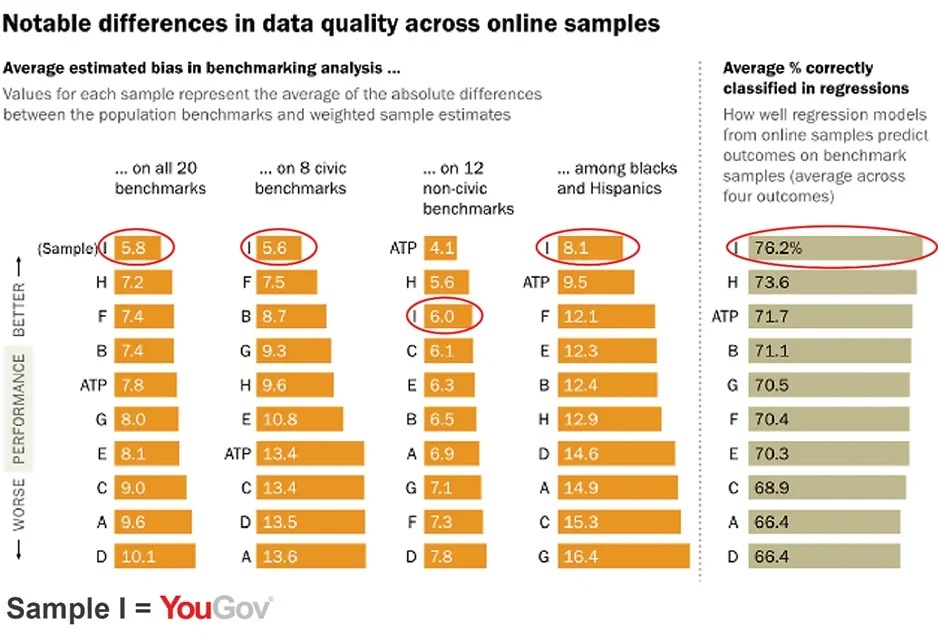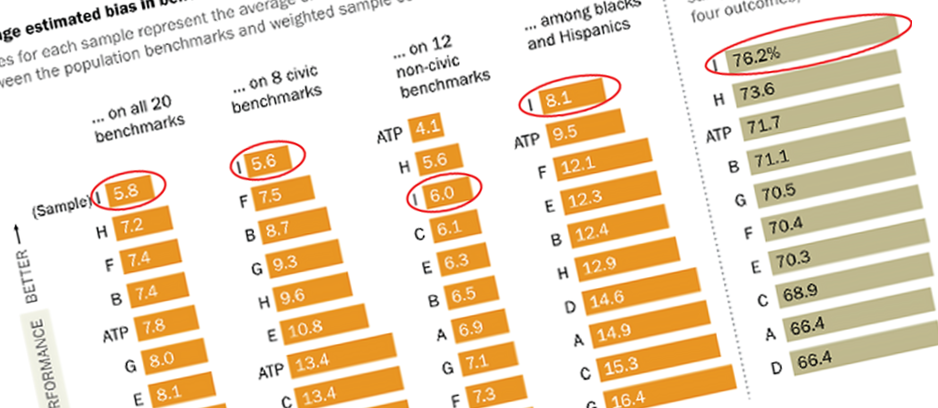The world's top polling institute, Pew, reports that for accuracy in online research 'vendor choice matters' - and YouGov comes top
The world-renowned Pew Research Center in the United States has published the results of a major study into the reliability of online survey data. Its aim was to adjudicate scientifically on the questions that remain about online non-probability panels – the technical term for providers such as YouGov who make population estimates based on adjusted samples from large recruited panels of online respondents.
The headline finding is that the accuracy of the data depends heavily on the research vendor. Pew commissioned surveys from nine different online research firms in the United States, and compared the answers that came back on a range of factors – 56 in all from whether people have a driver’s license to whether they’ve ever been married – and compared them to known government benchmarks.
YouGov was one of the nine, and is referred to as ‘Sample I’ throughout the report. The more sophisticated methods at both the sampling and weighting stages made ‘Sample I’s data dramatically more accurate than all the other participants (including Pew’s own online research panel). The Washington Post wondered which vendor supplied Sample I and asked, “Has someone cracked the code on making Internet polls more accurate?"

As Professor Doug Rivers, YouGov Chief Scientist, has now revealed, YouGov is the mystery vendor of ‘Sample I’.
On almost all the different measures of accuracy, YouGov came first of the nine different providers:

For full details of the methodologies we employ to achieve this high level of accuracy, see the more detailed explanation by Professor Doug Rivers, YouGov's Chief Scientist.
The report came in the same week as YouGov’s outstanding performance in the Welsh, Scottish and London elections, where the methodology refinements introduced since the general election paid dividends enhancing our population estimates.









